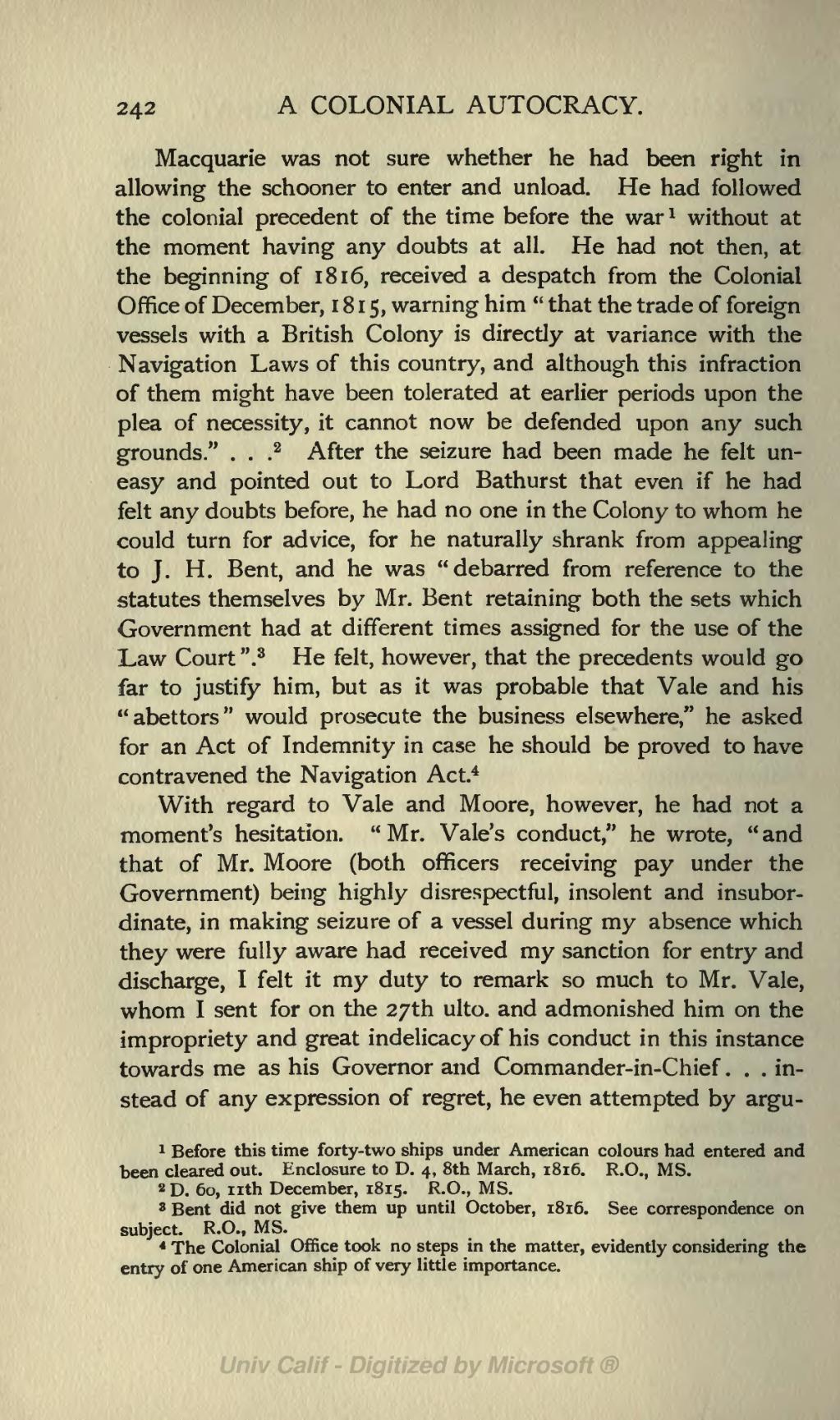Macquarie was not sure whether he had been right in allowing the schooner to enter and unload. He had followed the colonial precedent of the time before the war[1] without at the moment having any doubts at all. He had not then, at the beginning of 1816, received a despatch from the Colonial Office of December, 1815, warning him "that the trade of foreign vessels with a British Colony is directly at variance with the Navigation Laws of this country, and although this infraction of them might have been tolerated at earlier periods upon the plea of necessity, it cannot now be defended upon any such grounds." …[2] After the seizure had been made he felt uneasy and pointed out to Lord Bathurst that even if he had felt any doubts before, he had no one in the Colony to whom he could turn for advice, for he naturally shrank from appealing to J. H. Bent, and he was "debarred from reference to the statutes themselves by Mr. Bent retaining both the sets which Government had at different times assigned for the use of the Law Court".[3] He felt, however, that the precedents would go far to justify him, but as it was probable that Vale and his "abettors" would prosecute the business elsewhere," he asked for an Act of Indemnity in case he should be proved to have contravened the Navigation Act.[4]
With regard to Vale and Moore, however, he had not a moment's hesitation. "Mr. Vale's conduct," he wrote, "and that of Mr. Moore (both officers receiving pay under the Government) being highly disrespectful, insolent and insubordinate, in making seizure of a vessel during my absence which they were fully aware had received my sanction for entry and discharge, I felt it my duty to remark so much to Mr. Vale, whom I sent for on the 27th ulto. and admonished him on the impropriety and great indelicacy of his conduct in this instance towards me as his Governor and Commander-in-Chief … instead of any expression of regret, he even attempted by argu-
- ↑ Before this time forty-two ships under American colours had entered and been cleared out. Enclosure to D. 4, 8th March, 1816. R.O., MS.
- ↑ D. 60, 11th December, 1815. R.O., MS.
- ↑ Bent did not give them up until October, 1816. See correspondence on subject. R.O., MS.
- ↑ The Colonial Office took no steps in the matter, evidently considering the entry of one American ship of very little importance.
